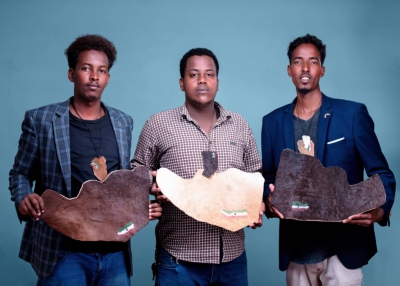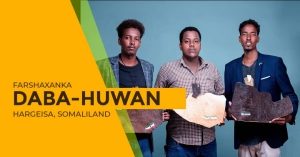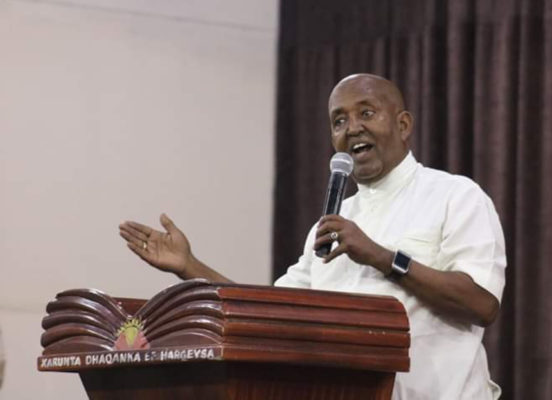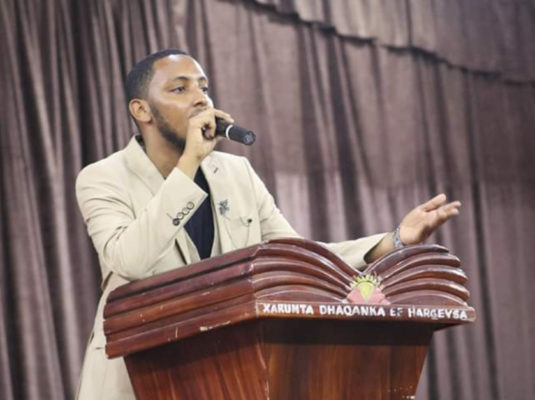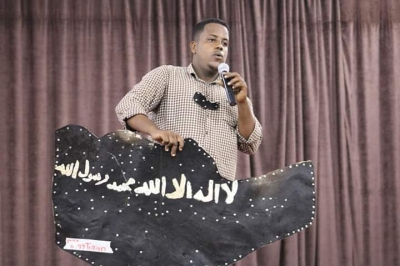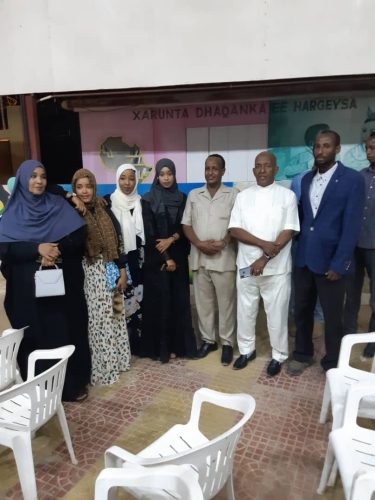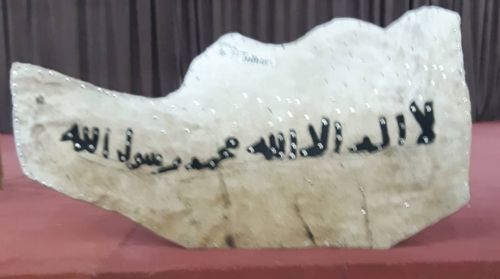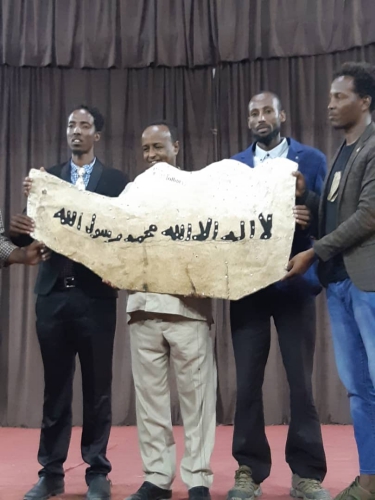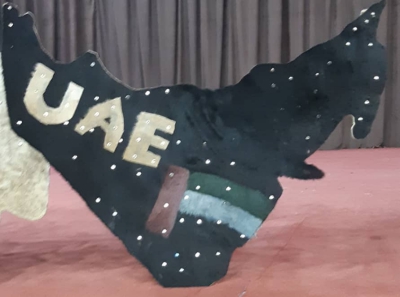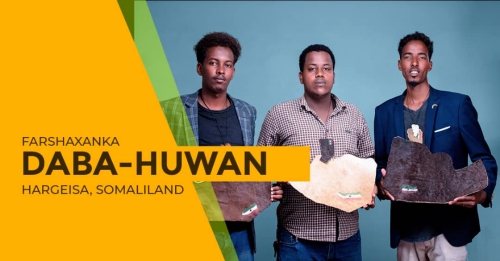That the biggest hall designed to seat hundreds of guests gets backed early was a surprise by itself.
Looking around there was not a grey hair or a bald head among the participants. Another inspiring surprise.
The hosts at the Red Sea Cultural Center, Abdulkarin Yussuf Farah, Khalid Mohamed, and Abdulhakim Mohamed Abdi Dagaal, were the most pleasant surprise of it all, however.
A few years earlier the trio, living in the same neighborhood of the capital of the Republic of Somaliland, Hargeisa, the youngsters, like tens of thousands of their peers, were lolling at street teashops whiling away time that was becoming more and more burdensome on their psyches blurring vision of the kind of future they wished to see on the horizon.
In 2014, they decided to turn onto their inner reserves looking for inspiration. they did not look far. They discovered that they had talent in creativity. They decided to put it to the test.
At first, their seemingly most daunting challenge was resources, seed money for their idea. Again, looking around, they settled on an idea that, with the help of their supportive parents they could develop.
Abdulkarim, Abdulhakim, and Khalid, eventually, settled on creating scintillating artistic shapes from one of the most plentiful – though relatively expensive – hides and skins.
They took the name of ‘Dabahuwan’ – a name borrowed from local lore.
Last weekend, at the Cultural Center, their creativity, resilience, and resistance to the many-a-temptation to quit and re-join their teeming, unemployed friends paid off.
The three friends proudly displayed their products – products that they shaped by hand and without the use of either machines or finishing chemicals.
Among the colorful – also using natural tints without additives, the Dabahuwan artistes held maps carved out of hides aloft to an admiring, highly appreciative audience. Center-stage among them was that of the Republic of Somaliland.
Abdulkarim, holding it up, explained why the hide map was white on one side, black on the other.
“The White underside of the skin symbolizes bright days, hope and a bright vision for us all. The dark side is the night – a night that gives us respite and rest from days of toil enshrouding us with its soothing, rejuvenating dark robe,” he said.
Engraved on the underbelly was the Arabic, Shahaada script on the Somaliland flag.
Other maps included those of the Africa continent, Djibouti and the United Arab Emirates.
Not only were the Dabahuwan products of maps, but there were necklaces, bracelets and wall posters shaped in the likeness of many other ideas – mostly wild animals, national and cultural symbols.
Many of the products on display sold out in the first few minutes.
“As the Minister for Youth, I solemnly promise that my government will spare no effort to encourage budding talents and creative minds such as the one the Dabahuwan trio have shown us tonight,” Minister Boss Mire Mohamed, speaking at the end of the show said.
Professor Hassan M Jama ‘Hassan Heiss’, who served as the Director of Publishing, and later, as the Principal Creative Editor at the old Somali Academy of Sciences and Arts from 1980-1991, where the underlying responsibility was cultural development, also lent Dabahuwan and the congregated youth encouraging visions.
“Here motive merged with talent proving that youth can always tap into their inner reserves to rise out from lethargy and ‘hopelessness induced by prevailing youth unemployment,” he said.
The Prof asked Director Jama Musa Jama and the team at the Cultural Center to incorporate youth-created, cultural handicrafts and artifacts at their yearly exhibitions which largely feature the writing talent – books.
“Every culture boasts of its own. Ours should nor be different. Dabahuwan has shown us the way this evening,” Heiss stated.
Ahmed Farah, a businessman representing the Al Furaat Group, thrilled participants by undertaking to buy thirty pieces of the varied products displayed.
“We stand by you,” he promised, adding that talents must be encouraged, developed and fostered not only to find employment for youth but to promote the nation, too.
Dabahuwan founders, profusely thanking the event organizers on the Center side, Ismail, Hamda Ali and other team members, awarded a certificate of appreciation to the Center. The certificate was aptly engraved course on a traditionally treated A-3 Size skin.
Ismail, deputy director, received the award on behalf of the Center as the Director was not in the country at the time.
In Dabahuwan, participants at the event agreed, a promising future awaited youth looking unto themselves for inspiration and creativity – in all aspects.